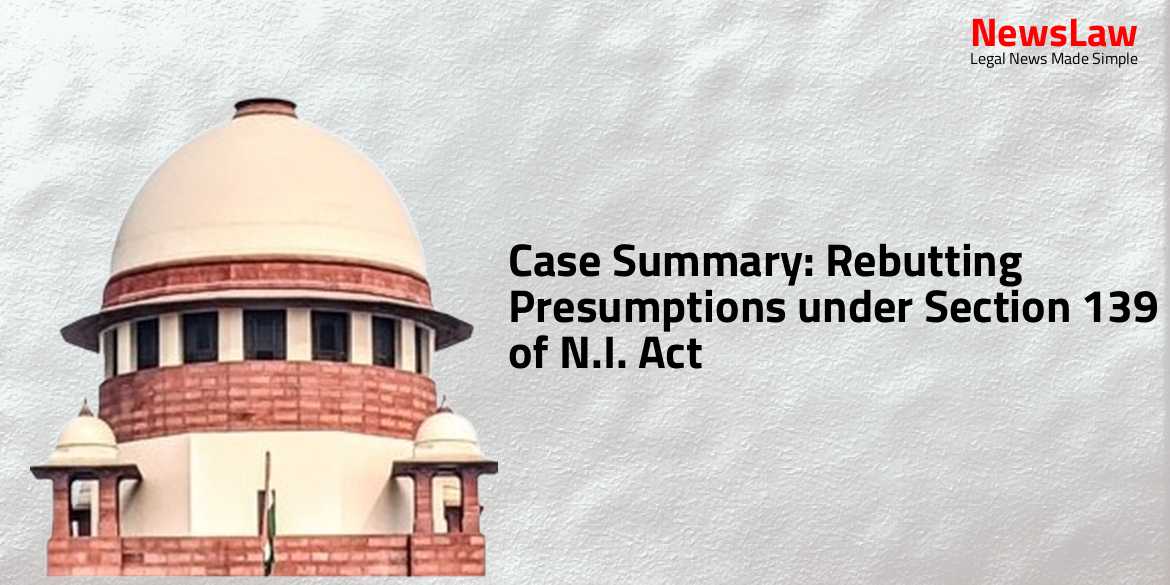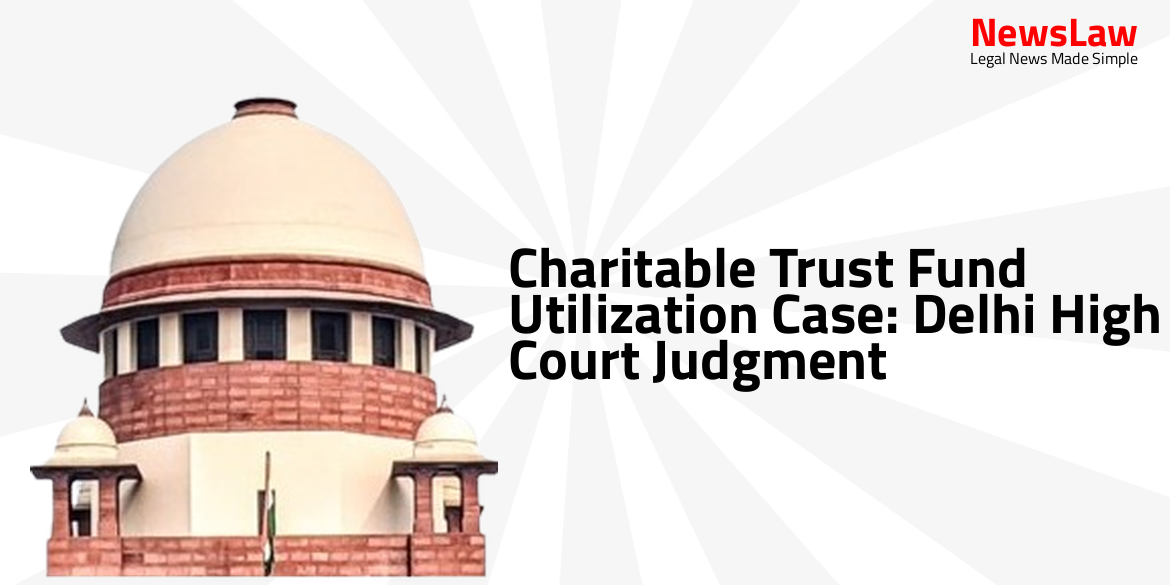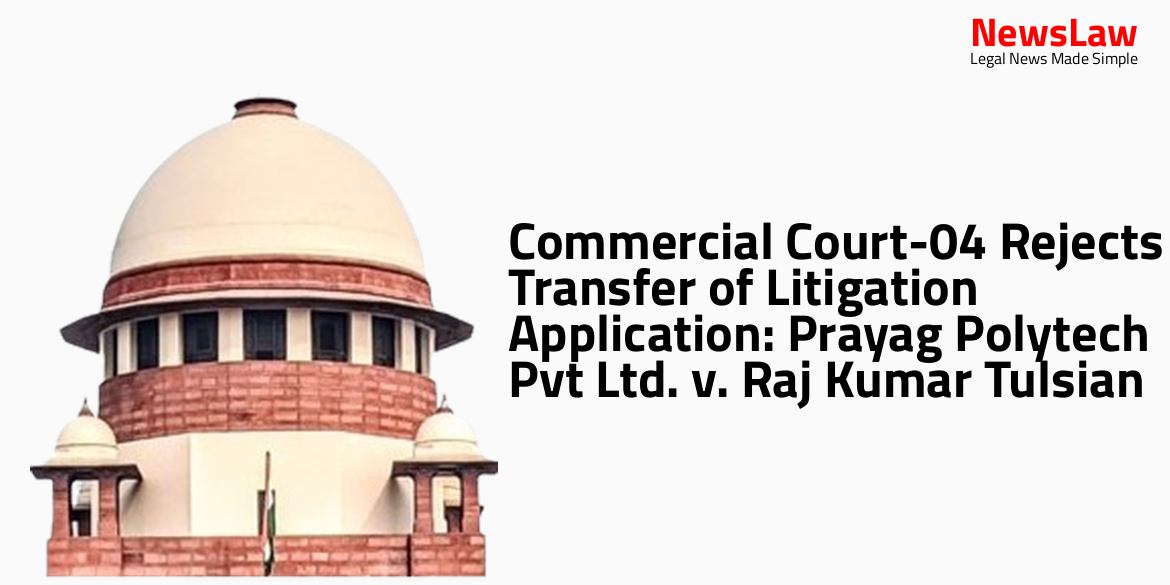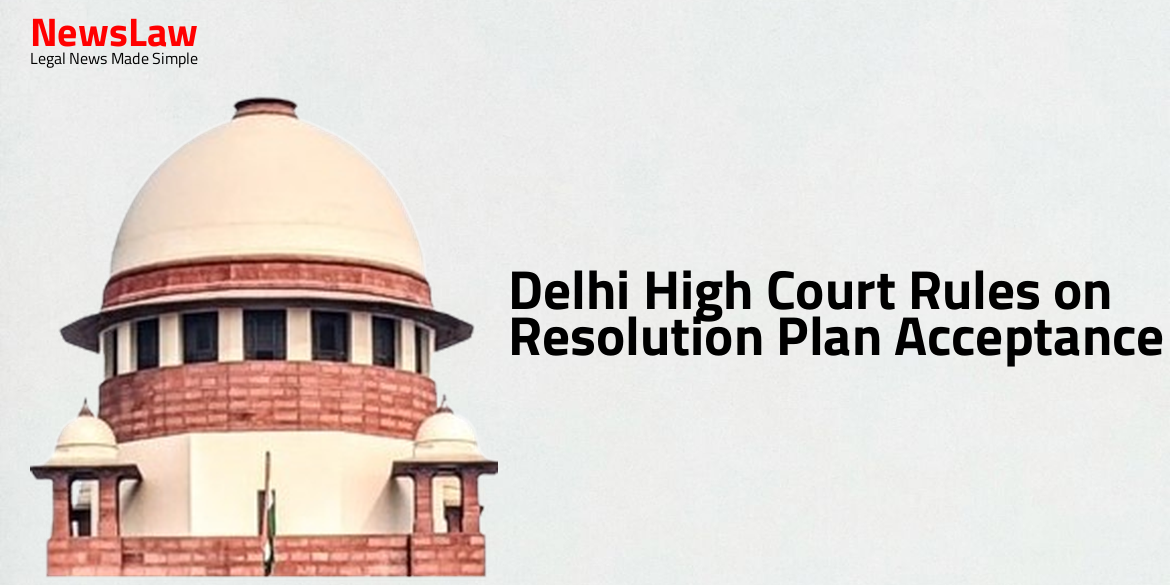Exploring the nuances of the recent Delhi High Court judgment on rebutting presumptions under Section 139 of the N.I. Act. The case delves into the intricacies of burden of proof and evidentiary requirements, highlighting the importance of establishing non-existence of consideration and debt. Stay informed on this complex legal issue!
Facts
- Simple imprisonment for four months imposed on Mr. XYZ.
- A fine of Rs.8,50,000/- also imposed on Mr. XYZ.
- In default of payment of fine, Mr. XYZ to undergo simple imprisonment for two months.
- The petitioner issued a cheque dated 09.09.2014 for Rs.5,26,785/- which was dishonoured due to insufficient funds.
- The petitioner claimed to have issued a Post-Dated-Cheque (PDC) in August, 2014 for the purchase of paper and board material, but it was returned as defective.
- Legal proceedings under Section 138 N.I. Act were initiated as a result.
- The petitioner argued that the cheque was filled by clerical staff and served a legal notice denying the debt, but failed to make the payment.
- The trial court found that the cheque bore the petitioner’s signature and notice was served, leading to a presumption under Section 138 NI Act in favor of the complainant.
- The petitioner’s defense that the goods were defective and returned was not substantiated.
- The transporter was not produced as evidence, and the claim of goods being transported on trust was rejected.
- The complaint’s ledger was deemed admissible despite being maintained in electronic form.
- The contention that only ‘board’ was supplied instead of ‘paper and board’ was refuted by the complainant’s explanation on VAT coding.
- Previous cases like S. Murugan v. M.K. Karunagaran were cited in support of the petitioner’s argument.
- Overall, the complaint alleged supply of ‘paper and board’ while the petitioner maintained that only ‘board’ was delivered, leading to a dispute over the debt claimed.
Arguments
- The principles of law in the judgments relied upon by learned counsel for the petitioner are well settled.
- Bare denial of passing the consideration and existence of debt is not sufficient for the accused.
- The burden of proof can shift to the complainant if something probable is brought on record by the accused.
- To disprove the presumptions, the accused must present facts and circumstances that make the non-existence of consideration and debt probable.
- The accused has the onus to raise a probable defense to rebut the presumption under Section 139 of the Act.
- The standard of proof for rebutting the presumption is preponderance of probabilities.
- The accused can rely on evidence or materials submitted to establish the non-existence of consideration and debt.
- The accused is not required to personally testify in support of their defence as Section 139 imposes an evidentiary burden.
- The accused can support their defence with evidence and is not mandated to be a witness.
Analysis
- Under Section 138 of the Act, a presumption is made that every negotiable instrument was made for consideration and to discharge debt or liability.
- If a blank cheque leaf is voluntarily signed and handed over for payment, it attracts a presumption under Section 139 N.I. Act unless proven otherwise.
- The principles related to the presumption under Section 118(a) in connection with Section 139 have been settled by the Supreme Court in Basalingappa v. Mudidasappa, AIR 2019 SC 1983.
- The burden of proving that an instrument was executed shifts when the complainant demonstrates that the instrument was executed.
- The definition of ‘proved’ in Section 3 of the Evidence Act is applicable to Sections 118 and 139 of the Act.
- The application of this definition affects the burden of proof required in such cases.
- The provisions of Sections 118 and 139 must be interpreted keeping in mind the definition of ‘proved’.
- The defence of the petitioner that goods were returned has not been proven on record.
- The defence taken by the petitioner appears hollow due to lack of evidence.
- No objection regarding the quality or description of goods was raised prior to the complaint.
- The case is distinguishable from M/s Indus Airways Pvt. Ltd. as the cheque was dishonoured due to insufficient funds, not a stop payment.
- Presumptions under the NI Act will stand until the accused proves otherwise; the cheque was deemed to be issued for consideration.
- The petitioner did not stop the encashment of the cheque despite claiming the goods were returned, weakening their defence.
- The signature on the cheque was admitted by the petitioner, leading to a presumption under Section 139 of the NI Act.
- Both Sections 118 and 139 of the NI Act allow for rebutting presumptions.
- No concrete evidence was presented regarding the return of goods by the petitioner.
- Failure to respond to a legal notice regarding the return of goods further weakens the petitioner’s claim.
- The absence of examination of the transporter who allegedly returned the goods casts doubt on the petitioner’s assertions.
- The initial receipt of goods by the petitioner was admitted, undermining their claim of non-receipt.
- The dishonor of the cheque was considered as part of an advance payment, but the lack of existing liability was disputed.
- A presumption is not evidence but only serves as a prima facie case for the party benefiting from it.
- The burden is on the accused to produce evidence to show the absence of consideration and debt, although direct evidence is not always necessary.
- Revisional jurisdiction was exercised with no evidence of perversity or cogent reasons to change concurrent findings.
- No jurisdictional errors were found to justify re-analysis or re-interpretation of evidence.
- Learned counsel for the petitioner/accused suggested re-analysis, but it was not deemed necessary.
Decision
- Pending applications disposed of.
- Revision petition dismissed for lack of merits.
Case Title: RAJESH KUMAR JAIN Vs. J.C. TRADING (2024:DHC:3901)
Case Number: CRL.REV.P.-222/2024



